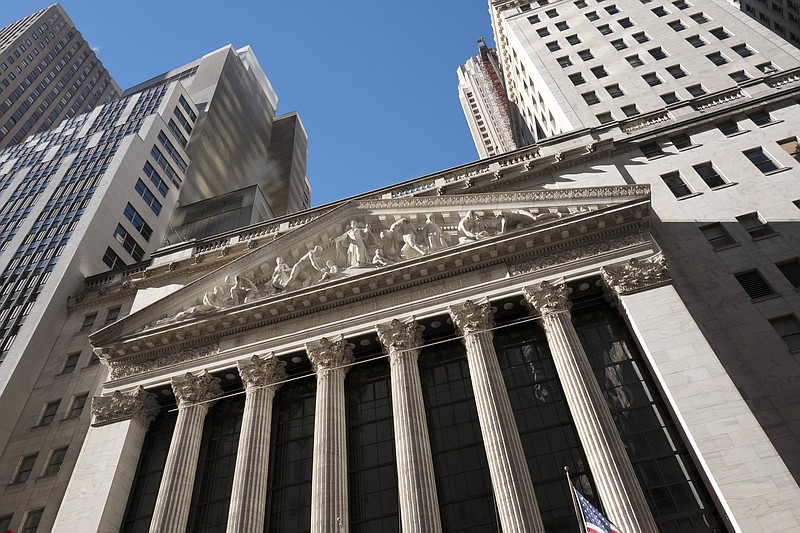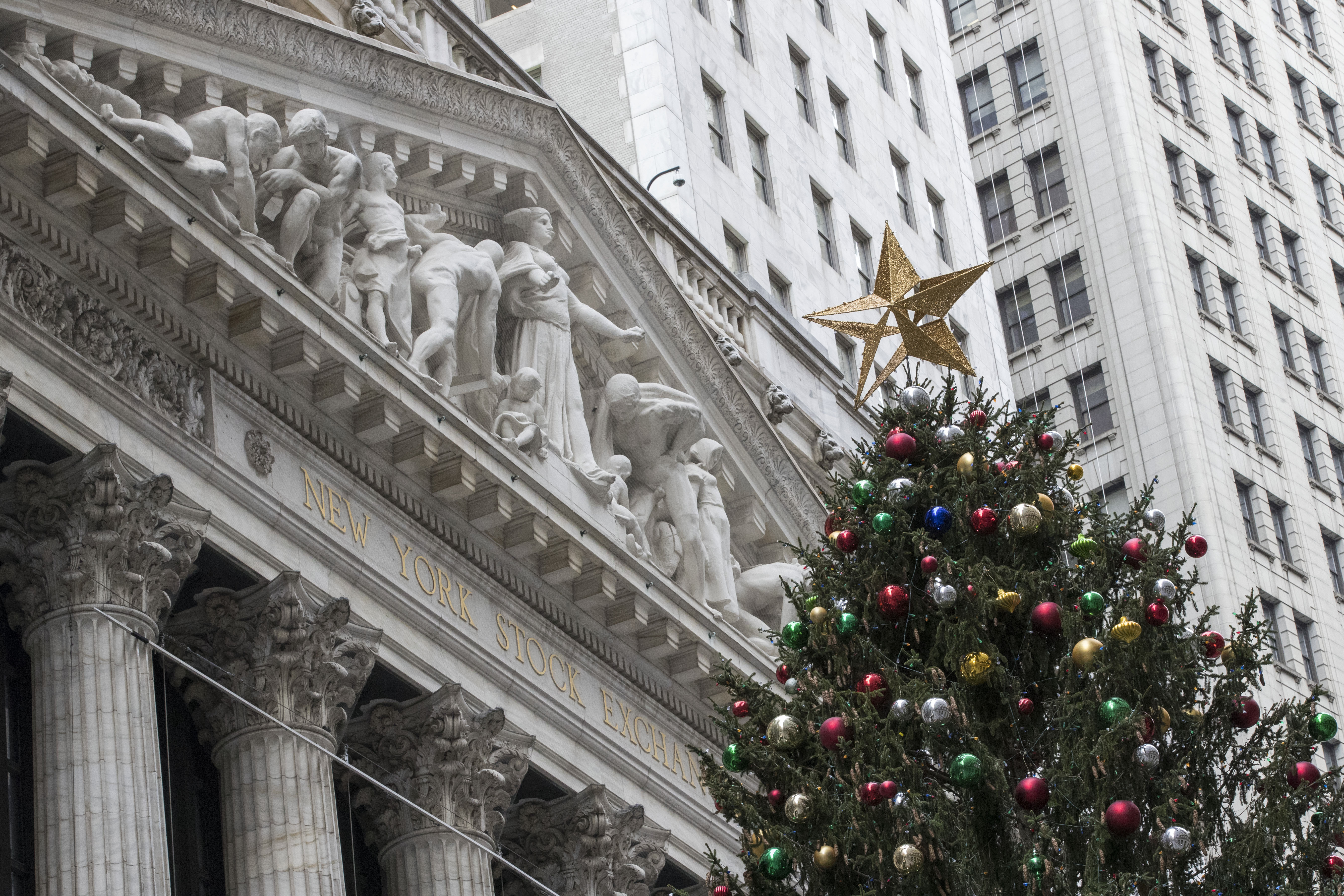Investors are exuberant and for good reason: the global economy is strong, corporate earnings are solid, Washington appears closer to delivering lower taxes on corporations and is signaling less restrictive oversight of the financial sector.
Thanks to that enthusiasm, Wall Street finished November with a broad rally that gave the Dow Jones industrial average its biggest gain since March and pushed it past the 24,000 mark for the first time.
Other market indicators also reached milestones on Thursday. The Standard & Poor's 500 index, which is widely followed by professional investors, had its biggest monthly gain since February.
Technology stocks, the biggest driver of the market's increase this year, were responsible for much of the gain, rebounding from a sharp pullback the day before. Financial stocks slowed a bit, but remain in the midst of a weeklong rally sparked by rising interest rates and encouraging words from regulators.
Investors were encouraged by the latest batch of economic data pointing to a pickup in global and domestic demand. But the run-up in the market really kicked in after developments in Washington gave traders fresh optimism that the Republican-led effort to forge a sweeping tax cut bill will succeed.
"A parade of data have surprised to the upside and that's helped underpin the market's tone," said Quincy Krosby, chief market strategist at Prudential Financial. "But clearly the move toward tax reform, moving through the hurdles, has the market poised for a tax reform package to be legislated either at the end of this year or early next year."
The S&P 500 index climbed 21.51 points, or 0.8 percent, to 2,647.58. The Dow jumped 331.67 points, or 1.4 percent, to 24,272.35. The average was briefly up more than 387 points.
The Nasdaq added 49.58 points, or 0.7 percent, to 6,873.97. The Russell 2000 index of smaller-company stocks picked up 1.84 points, or 0.1 percent, to 1,544.14. The major stock indexes all ended November with gains.
Stocks are being driven higher by a healthy economic backdrop and by the prospect that policy changes will fatten corporate profits.
The global economy is gathering momentum and a falling dollar has made American-made products cheaper overseas, benefiting U.S. corporations. And recent economic data have given investors more reason to feel bullish.
The Commerce Department reported this week that the U.S. economy grew at a 3.3 percent annual pace from July through September, the fastest in three years. Consumer spending and incomes posted healthy gains in October, the Labor Department reported Thursday.
American consumers, whose spending accounts for 70 percent of U.S. economic output, are in the sunniest mood since 2000, their disposition brightened by a healthy job market. The unemployment rate is at a 17-year low 4.1 percent.
Shares of Mohawk Industries, the Calhoun, Ga.-based floorcovering company, rose by $3.51 per share to $282.61, an all-time high. Unum's stock rose by 20 cents a share to $56.62, the highest close since 1999.
The encouraging economic picture has pushed the yield on the 10-year Treasury higher. It climbed Thursday to 2.41 percent from 2.39 percent late Wednesday.
Investors are also enthusiastic about the Republican tax bill moving through Congress. On Thursday, Republican Sen. John McCain, who derailed the GOP effort to dismantle the Obama health care law last summer, said he would back the tax bill. The announcement was a major boost for the legislation, which would slash the tax on corporate earnings to 20 percent from 35 percent, reduce the likely taxes on foreign earnings and temporarily let companies immediately deduct the cost of investments from their taxes.
Traders have also welcomed the Trump administration's bid to reduce regulations, especially on financial firms, potentially boosting profits. The president's pick to run the Consumer Financial Protection Bureau, Mick Mulvaney, is expected to go easier on banks than his predecessor, Richard Cordray. Likewise, incoming Federal Reserve chief Jerome Powell has said he believes regulators can roll back some of the tougher bank rules imposed after the financial crisis.

